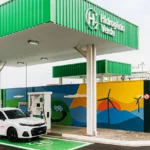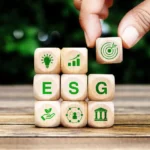In times of global energy redefinition, one question arises: who will be the protagonists of the next global energy matrix? The race for clean and safe sources is underway, and Brazil — with its renewable matrix, abundant natural resources and export vocation — is beginning to occupy a privileged position in this dispute.
Brazil has what the world needs
While most economies still rely heavily on fossil fuels, Brazil has a strategic advantage: more than 44% of its energy mix is already renewable, according to the Energy Research Company (EPE). This percentage contrasts sharply with the global average, which is around 14%.
Furthermore, in 2024 the country attracted around US$1.4 billion in investments aimed at the energy transition, ranking among the ten most attractive destinations in the world, according to a survey by BloombergNEF.
But it’s not just a question of potential — it’s a historic opportunity.
The geopolitical board has changed. And Europe is looking for new allies
The war in Ukraine, the 2022 energy crisis and the Paris Agreement targets have accelerated the EU’s urgency for external sources of clean energy. The European Green Deal — which envisages climate neutrality by 2050 — requires reliable, scalable and environmentally responsible partners.
That's where Brazil comes in. Not just as an exporter of energy commodities, but as a strategic partner for the energy security of the European bloc.
Green hydrogen: the new Brazilian pre-salt?
Within this agenda, one vector is emerging with strength: green hydrogen. Europe has already signaled that it wants to import 10 million tons of the input by 2030. Brazil, in turn, has sun, wind and water in abundance to produce it in a clean and competitive way.
Studies by the FHC Foundation indicate that this market could generate US$2.5 trillion per year by 2050. States such as Ceará, Bahia and Rio Grande do Norte are already attracting huge international investments for production and export projects.
It is no exaggeration to say that green hydrogen could become the new pre-salt of the Brazilian economy.
What's at stake?
More than meeting global energy demand, Brazil has the chance to reshape its position in the world: from a supplier of raw materials to a strategic player in the new clean economy.
But to do this, we will need more than just natural resources. We will need:
- Invest in export infrastructure,
- Strengthen regulatory frameworks that ensure legal certainty and predictability,
- And expand commercial partnerships with a focus on technology and innovation.
Are we ready to take on this leading role?
The energy transition is not just a climate issue. It is an economic and geopolitical dispute of major proportions. Brazil has the attributes to lead — it remains to be seen whether we will have the strategy, ambition and focus needed to transform potential into protagonism.
Because the world will not wait. And Brazil has everything it needs to become a key partner in the new global energy matrix.


